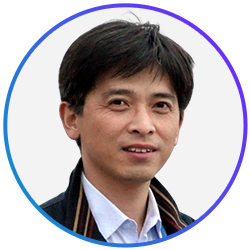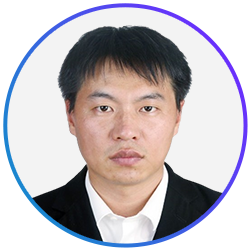Biography
Toshihiko Sugiura obtained his PhD in nuclear engineering from the University of Tokyo in 1991 for his research on electromagnetic field analysis of fusion reactor first walls and superconductors. During his doctoral period, he had the opportunity to conduct applied research on high-temperature superconductivity under the supervision of Professor F.C. Moon of Cornell University, who is renowned for his work on superconducting applications and nonlinear dynamics.
At Toshiba Corporation, where he worked from 1991 to 1994, he was involved in the development and design of superconducting coils for use in accelerators.
He is now a professor of mechanical engineering at the Faculty of Science and Technology, Keio University, Japan. His laboratory's energy is focused on investigating electro-mechanical coupling and nonlinear dynamics of mechanical systems by analyses and experiments. Topics of his research include nonlinear oscillation of superconducting magnetic levitation systems, ultrasonic nondestructive evaluation of structures, and the dynamics of microbubbles for applications such as ultrasonic cleaning, ultrasound contrast agents and drug delivery.
Abstract
My presentation will focus on nonlinear dynamical phenomena occurring in superconducting magnetic levitation systems. High-temperature superconducting magnetic levitation systems can achieve contactless and stable levitation without the need for control, thus avoiding energy loss due to friction and the generation of impure debris. This feature is expected to be used in applications such as linear drive transport and flywheels for power storage. The evaluation of the dynamical characteristics of such systems is an important issue in their mechanical design. Unlike mechanically supported conventional systems, the dynamics of those systems are characterized primarily by low damping due to non-contact support and stability resulting from the pinning force of the superconductor. Another important feature is that, due to their low damping, nonlinear vibration phenomena caused by the nonlinearity of electromagnetic forces are also likely to occur. Examples of such phenomena include bending of the resonance peak in frequency responses to low frequency side and super-harmonic and sub-harmonic resonance. Furthermore, more complicated vibrations can also be caused by the nonlinear coupling of multiple degrees of freedom via electromagnetic forces. Examples are internal resonance, autoparametric excitation, combination resonance, and mode localization. Safety design of high-temperature superconducting magnetic support systems must be based on a thorough understanding of the characteristics of nonlinear dynamics that cannot be predicted in the linear regime. Methods to passively suppress the resonances of these levitation systems and to utilize their non-linear resonances are currently under investigation. The progress of these studies will also be presented.














